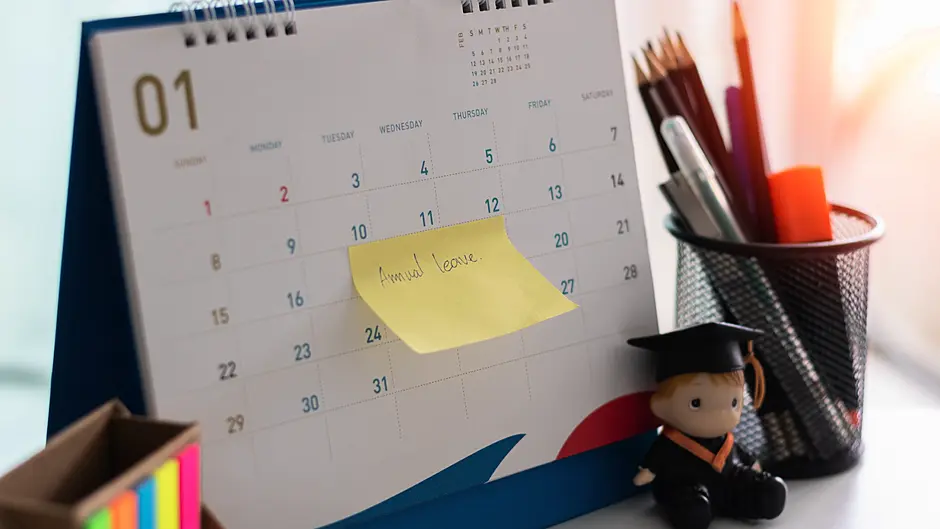
At this time of year, employees are planning their summer holidays and some may have questions about their employment rights in relation to taking their annual leave.
The following are some common queries which arise.
Are all workers entitled to paid annual leave?
All employees are entitled to annual leave, including full-time, part-time, temporary and casual workers.
Should I be paid by my employer while on annual leave?
Annual leave is paid time off work. Holiday pay must be paid in advance at your normal weekly rate.
If your pay changes from week-to-week (for example, because of commission or bonus payments), your holiday pay is the average of your pay over the 13 weeks before you take holidays.
How much annual leave am I entitled to?
Your annual leave entitlement depends on how much time you have worked in a ‘leave year’.
The statutory leave year runs from April 1st to March 31st.
Most employers use the ‘calendar year’ (January to December) instead of the official leave year to calculate your entitlement for administrative reasons, but this does not affect your statutory leave entitlements.
Your employer should tell you when your leave year begins and ends.
There are three ways to calculate your annual leave entitlement. You can use whichever method gives you the greater entitlement
If you have worked at least 1,365 hours in a leave year, you are entitled to the maximum of four working weeks’ paid annual leave. You cannot use this method if you changed employment during the leave year.
Calculate one third of a working week for each calendar month in which you worked at least 117 hours.
Calculate eight per cent of the hours you worked in the leave year, subject to a maximum of four working weeks.
When calculating your holiday entitlement, your employer should include all the hours you worked, including time spent on annual leave, maternity leave, parental leave, force majeure leave, adoptive leave or the first 13 weeks of carer’s leave.
If you have worked for at least eight months, you are entitled to an unbroken period of two weeks’ annual leave. This means you can get two weeks off in a row.
How do I calculate my annual leave if I work part-time?
Generally, annual leave for part-time workers is calculated using option three above. This means you can get eight per cent of your hours worked. If you work full-time for some months and part-time for the rest of the year, you should calculate the leave for the full-time and the part-time periods of work separately.
Can my employer force me to take annual leave?
Usually, employees can ask to take annual leave at specific times. Your employer can accept your request, or refuse your request. Your employer decides when annual leave may be taken, but this is subject to a number of conditions.
Your employer must take into account your family responsibilities, as well as the available opportunities for rest and recreation. Your employer must discuss your annual leave with you (or your union) at least one month before you are to take the leave i.e. your employer cannot tell you on Friday that you must take annual leave the following week.
What if I get sick while on annual leave?
If you are sick while you are on annual leave, you should get a medical certificate from your GP (doctor) as soon as possible to cover the days you were sick. Give the medical certificate to your employer as soon as you return to work. This way, the sick days will not count as annual leave, and you can take your annual leave at a later date. Your employer cannot make you to take annual leave for time you were on certified sick leave.
What happens if I am off on maternity or parental Leave?
Annual leave is not affected by other types of statutory leave. Time spent on maternity leave, paternity leave, adoptive leave, parental leave, force majeure leave and the first 13 weeks of carer’s leave is treated as though you have been in employment. For example, time spent on parental leave can be used to accrue (build up) your annual leave entitlement
What happens my annual leave if I leave my job?
If you are leaving a job without taking all the annual leave you are entitled to, your employer must pay you for the days you have not taken.
Can my employer offer to pay me extra in lieu of my annual leave?
It is illegal for an employer to pay an employee extra instead of allowing them take the minimum statutory annual leave entitlement, except where the employment ends and the employee has earned unused annual leave days. In that case the employer should pay the employee for any outstanding annual leave and public holidays.
Can I ‘carry over’ annual leave to next year?
Annual leave should be taken within the leave year. Depending on your employer, you can agree to take your annual leave within 6 months of the relevant leave year. Any further carrying-over (also called holding over) of annual leave would need to be agreed between you and your employer.
If you are on long-term sick leave and cannot take your annual leave due to illness, you can carry it over for up to 15 months after the end of the year it was earned. If you leave your job within these 15 months, you should get payment instead of the leave you did not take due to illness.







